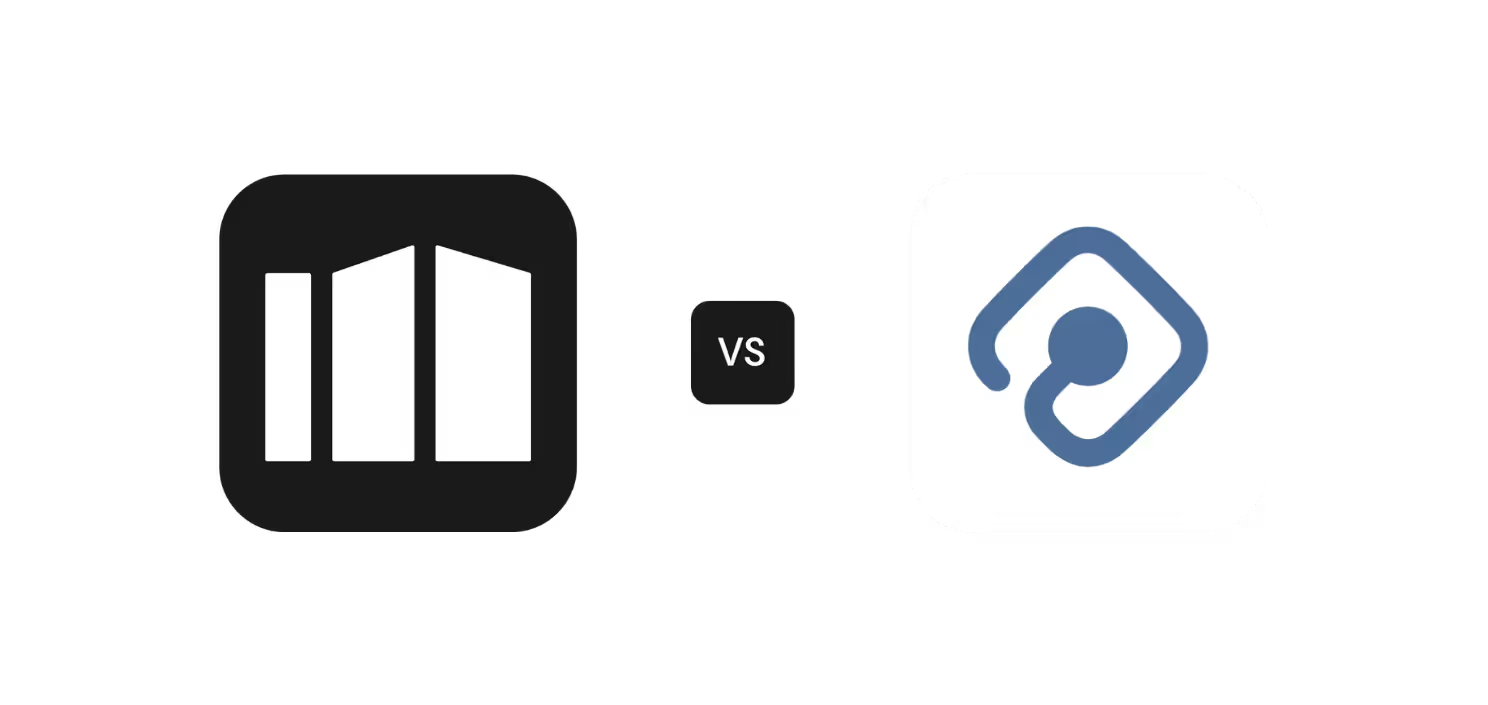
Mapiq vs. Nimway: Choosing the Best Workplace Partner
Mapiq is a SaaS workplace experience platform built to optimize modern offices with data and flexibility. Nimway, backed by Sony, offers hardware-centric solutions like room panels and wayfinding tools. So which one is right for your workplace strategy?
Rethinking Workplace Optimization
Companies today don’t just need tools, they need long-term partners. From integrating with your tech stack to ensuring usability and adoption, Mapiq helps businesses streamline operations while improving both employee experience and space efficiency.
Cross-platform adoption
Getting employees to use new workplace tools across web, mobile, and in-office devices can be difficult. Mapiq offers a consistent, user-friendly experience on all platforms, including app, web, and kiosks to drive adoption with minimal training.
Growth across locations
As organizations expand, managing different offices with varying needs becomes complex. Mapiq’s modular setup supports global scalability while allowing each location to tailor its configuration and policies.
Avoiding vendor lock-in
Many workplace solutions require proprietary hardware or limit integration options. Mapiq is software-first and hardware-agnostic, giving organizations the freedom to build a flexible tech stack on their terms
Beyond Panels and Booking
Nimway lacks the deep analytics and platform flexibility needed for evolving workplace strategies

Designed to Scale With You
Whether you're growing across regions or optimizing an existing HQ, Mapiq's architecture supports local nuance and global rollouts. Nimway, while easy to deploy in smaller environments, can hit limitations when scaling across complex enterprises.
Insights That Start Where Hardware Stops
Nimway provides basic usage logs from room panels and occupancy sensors. Mapiq takes it further with AI-driven workplace analytics, trend forecasting, and integrations with sensors, Wi-Fi, and access systems.



More Than a Vendor: A Workplace Partner
Nimway offers a solid product and onboarding through Sony’s network but has limited flexibility and support for advanced strategy. Mapiq, in contrast, provides a dedicated success team, co-development opportunities, and ongoing workplace strategy alignment.
Want Flexible Admin Tools, Not Just Employee Apps
Want Flexible Admin Tools, Not Just Employee Apps
Nimway focuses on user-facing functionality like displays and navigation. Mapiq provides intuitive tools for both admins and end-users from floor plan management to real-time space data.
Need Deeper Data, Not Just Booking Logs
Nimway tracks room usage through its panels and sensors but doesn’t deliver predictive planning or deep integrations. Mapiq connects across your digital ecosystem to offer real-time insights and forecasting.
Prefer Real-Time Feedback, Not Static Systems
Mapiq integrates with IoT sensors, Wi-Fi, badge data, and more removing reliance on user input. Nimway’s occupancy tracking depends largely on sensor-triggered logs and display-based check-ins.
Mapiq vs. Nimway




Multi-location deployment
Limited
Hardware agnostic
AI-powered analytics
Desk booking
Room booking
Visitor management
Smart lockers & access integration
Wayfinding
In-house workplace consultancy
Announcements & communications
See Mapiq in Action
Ready to transform your workplace? Book a personalized tour today and discover how Mapiq can help you create smarter, more adaptable offices without the hardware headaches.

Frequently asked questions
Does Mapiq require specific hardware like Nimway?
No. Mapiq is hardware-agnostic and integrates with your existing systems (sensors, Wi-Fi, badge access, etc.), while Nimway requires Sony’s ecosystem.
How does Mapiq provide data insights?
Mapiq offers AI-driven forecasting, historical trend analysis, and real-time occupancy metrics, all pulled from multiple data streams.
What support does Mapiq provide?
Dedicated customer success managers, in-house data consultants, and long-term workplace planning support are included with every implementation.
Is Mapiq suitable for global enterprises?
Yes. Mapiq supports complex multi-location deployments with local autonomy and global oversight.
Can Mapiq integrate with our existing workplace tools?
Absolutely. Mapiq connects with Google, Microsoft, Cisco Spaces, ServiceNow, access systems, and more offering unmatched flexibility.